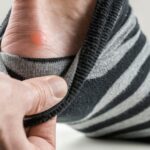A Flexible Spending Account (FSA) is a valuable tool for managing healthcare costs. It allows you to set aside pre-tax money to pay for eligible medical expenses for yourself, your spouse, and your dependents. Understanding what “FSA eligible” truly means can help you maximize your savings and make the most of this benefit. For 2024, employees can contribute up to $3,200 to their healthcare FSAs, according to the IRS.
The Internal Revenue Service (IRS) defines what qualifies as an eligible medical expense. This guide explores the categories of items and services that typically qualify for FSA reimbursement.
Note: This article focuses on healthcare FSAs. Limited Purpose FSAs (LP-FSAs) and Dependent Care FSAs (DC-FSAs) have different eligibility rules.
Categories of FSA-Eligible Items
The FSA Store® offers an extensive list of eligible items and expenses, complete with a search function. However, confirm item eligibility with your plan administrator before purchasing, as coverage can vary.
- Home Healthcare: This includes items such as thermometers for monitoring body temperature, pain relief devices, and blood pressure monitors for at-home health management.
Alt: Digital thermometer displaying a temperature reading, an FSA-eligible home healthcare item.
- Over-the-Counter (OTC) Medications: Medications for cough, cold, allergies, and pain relief.
- Baby and Child Supplies: Breast pumps, baby monitors, and children’s pain relievers.
- Skin Care: Sunscreen, acne treatments, and lip balm with SPF 15 or higher.
- Eye Care: Prescription contact lenses, eye drops, and contact lens solutions.
- Oral Care: Toothache relief, water flossers (with a Letter of Medical Necessity or LMN), and denture cleansers.
- Foot Care: Orthotics, foot creams, and callus removers.
- Digestive Health: Heartburn relief, antacids, and laxatives.
- Vitamins: Prenatal vitamins and nutritional supplements (with an LMN).
- First Aid Supplies: Bandages, antibiotic ointments, and first aid kits.
- Sexual Health Medications and Products: Over-the-counter and prescription birth control, condoms, and erectile dysfunction (ED) medications (with a prescription).
- Menstrual Products: Pads, tampons, menstrual cups, and period underwear.
- Incontinence Supplies: Pads and protective underwear.
- Smoking Cessation: Programs and products designed to help individuals quit smoking.
Categories of FSA-Eligible Expenses
Beyond physical items, many healthcare services are also FSA-eligible. Always verify eligibility with your FSA administrator.
- Health insurance copayments, office visits, co-insurance payments, and deductibles.
Alt: A doctor using a stethoscope to examine a patient, representing FSA-eligible medical expenses for doctor visits.
- Dental Work: Procedures like fillings, cleanings, and orthodontics.
- Vision Expenses: Costs associated with eyeglasses, prescription contact lenses, and eye exams.
- Prescriptions: Medications prescribed by a doctor.
- Therapy and Counseling Services: Mental health services, potentially requiring an LMN (marriage or family counseling typically excluded).
- Chiropractic Care and Acupuncture: Alternative medical treatments.
- Hospital Fees, Surgery, and Diagnostic Services: Costs associated with inpatient and outpatient medical procedures.
- Allergy Testing: Diagnostic tests for identifying allergies.
For a more exhaustive list, consult the FSA Store’s comprehensive eligibility list.
Expenses and Items That Aren’t FSA-Eligible
While FSAs cover a broad range of healthcare needs, some expenses are excluded. The FSA Store’s eligibility list provides a comprehensive overview.
- Adult and Child Day Care: Typically covered by a Dependent Care FSA.
- Aromatherapy: Not considered a medical necessity.
- Health Insurance Premiums: Payments for your health insurance policy.
- Latex Gloves: Generally not considered a medical expense for personal use.
- Shampoo: Standard hygiene product, not typically related to a medical condition.
- Toothbrushes: Routine oral hygiene item.
- Weight Loss Supplements: Primarily for general health, not considered a medical treatment.
Where to Buy FSA-Eligible Items
You can use your FSA funds at various locations, including drug stores, grocery stores, doctor’s offices, vision centers, dentists, hospitals, and other medical offices. Many online retailers also accept FSA cards or offer reimbursement options.
How to Use Your FSA Funds
Some FSA plans provide FSA cards for direct payments from your account. If you don’t have a card, you can pay out-of-pocket and submit documentation for reimbursement. Regardless of payment method, ensure the expense is FSA-eligible.
Understanding what “What Is Fsa Eligible” covers empowers you to effectively manage your healthcare spending and maximize your FSA benefits. Always consult your plan administrator for specific eligibility details and guidelines.

